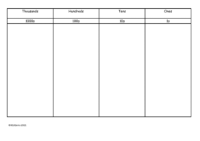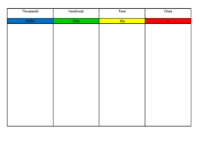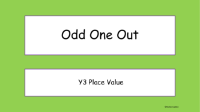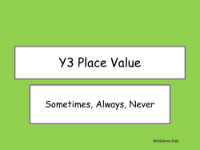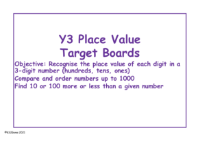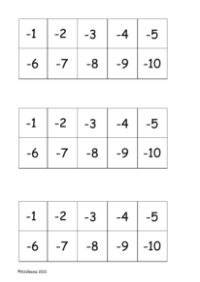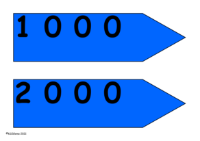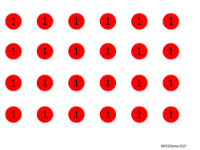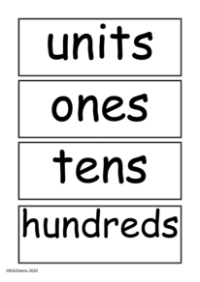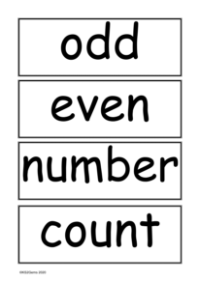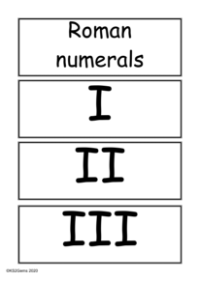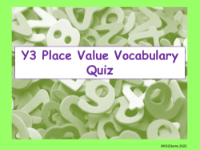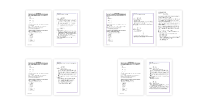Vocabulary - Estimating
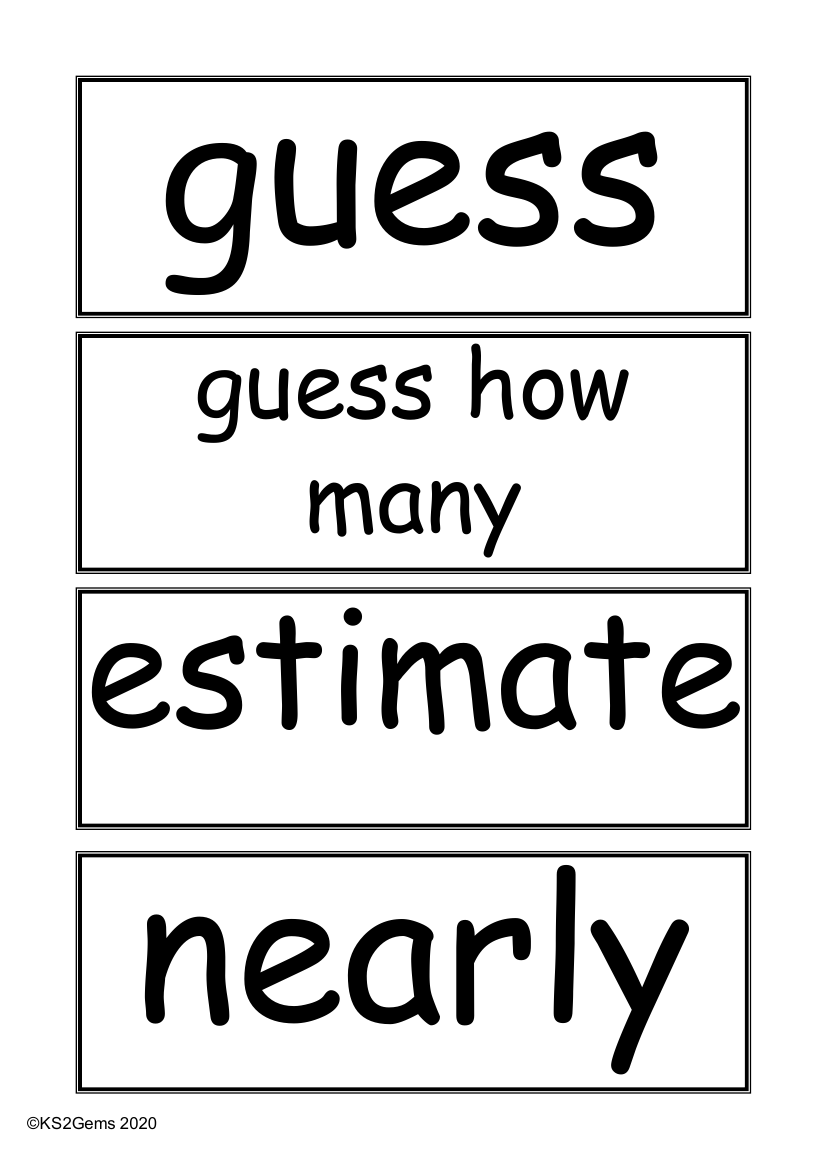
Maths Resource Description
When it comes to the concept of estimating in mathematics, several key vocabulary terms are used to help students understand and communicate their thought process. Terms like "guess" and "guess how many" introduce the idea of making an initial, often uncalculated, judgment on quantity. The word "estimate" itself suggests a more informed guess, where one aims to find a value that is "nearly" or "roughly" correct. "Close to" and "approximate," along with "approximation," are used when the exact number is not required, but a value that is near the actual figure is sufficient.
Further vocabulary includes phrases such as "about the same as," which suggests a comparison with a known quantity, and "just over" or "just under," which indicate a slight deviation from a specific number. The term "exact" is used when precision is needed, while "exactly" confirms that precision has been achieved. In contrast, "too many," "too few," and "not enough" all describe inaccuracies in estimation. When adjusting numbers, "round," "round up," and "round down" are used to modify a value to a more convenient or conventional figure, often to the "nearest" whole number or specified unit of measurement, as in "round to the nearest..." These terms are crucial in helping students develop their estimating skills and are commonly used in educational settings to enhance their numerical understanding.
